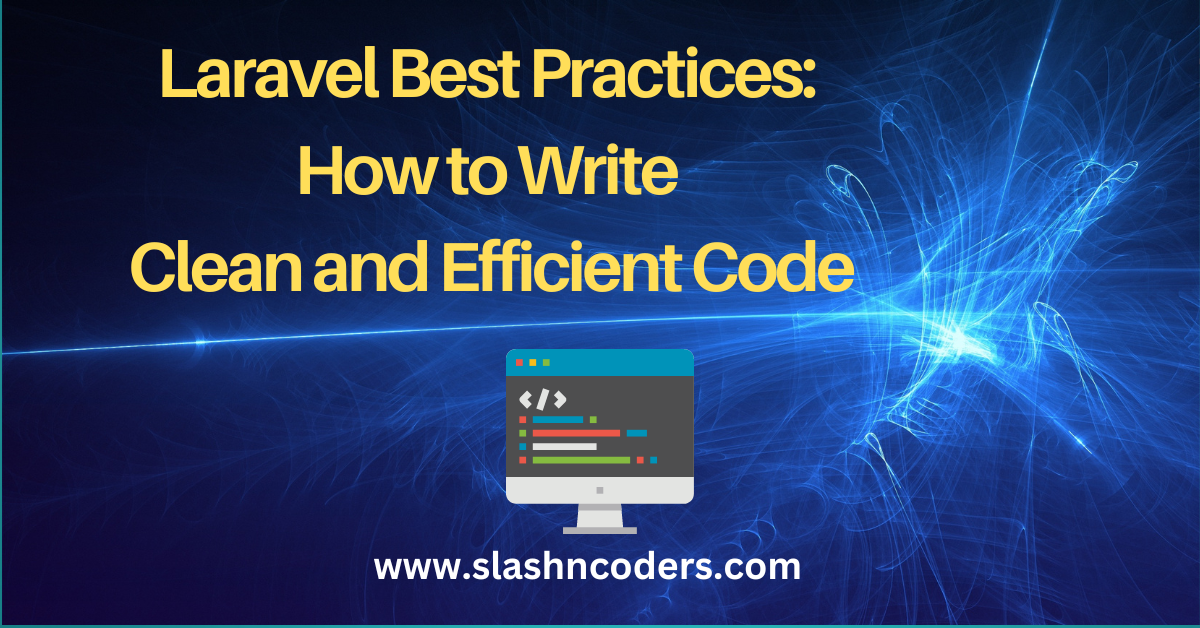In the world of web development, Laravel is a popular and powerful PHP framework that is known for its elegant syntax and easy-to-use features. However, with its power comes a certain level of complexity, and it’s important for developers to follow best practices in order to write clean and efficient code. In this blog post, we’ll explore some of the key best practices for writing clean and efficient code in Laravel.
- Use the built-in validation and sanitization methods: Laravel provides a number of built-in validation and sanitization methods that can help you to easily validate and clean user input. By using these methods, you can ensure that your data is clean and consistent, which can help to prevent errors and improve the overall performance of your application.
- Use dependency injection: Dependency injection is a design pattern that allows you to easily manage dependencies between objects in your application. By using dependency injection in Laravel, you can ensure that your code is more modular and easier to maintain.
- Use the right kind of data structures: Laravel provides a number of different data structures, such as collections, models, and query builder. Each one has its own purpose and use case, so it’s important to use the right one for the job.
- Use the built-in caching methods: Laravel provides a number of built-in caching methods that can help you to improve the performance of your application. By using caching, you can store the results of expensive operations so that they can be quickly retrieved later.
- Use the built-in event and listener system: Laravel’s event and listener system allows you to easily handle events in your application. By using this system, you can ensure that your code is more modular and easier to maintain.
- Keep your controllers thin: Controllers are responsible for handling HTTP requests, but they should not contain any business logic. Instead, they should delegate tasks to other classes, such as services or repositories.
- Use the correct exception handler: Laravel provides a number of exception handlers that can help you to handle errors in your application. By using the correct exception handler, you can ensure that your code is more modular and easier to maintain.
- Keep your views simple: Views are responsible for displaying data, but they should not contain any logic. Instead, they should only contain simple loops and conditionals.
By following these best practices, you can ensure that your code is clean, efficient, and easy to maintain. Of course, there are many other best practices that you should follow, but these are some of the most important ones.
In conclusion, Laravel is a powerful and elegant framework, but it’s important to follow best practices in order to write clean and efficient code. By using the built-in validation and sanitization methods, using dependency injection, using the right kind of data structures, using the built-in caching methods, using the built-in event and listener system, keeping your controllers thin, using the correct exception handler, and keeping your views simple, you can ensure that your code is clean, efficient, and easy to maintain.


